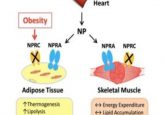Does age impact the effects of intermittent fasting?

An investigation into the effects of intermittent fasting found the benefits to be age-dependent.
Intermittent fasting (IF) has become increasingly popular over the last decade, but whether or not the age of an individual impacts IF benefits remains unclear. Now, researchers from the Technical University of Munich, LMU Hospital Munich and Helmholtz Munich (all Germany) have investigated the effects of IF on glucose homeostasis in mice of different ages, finding that IF impaired beta cell function in adolescent mice.
IF – alternating between periods of eating and fasting – is a nutritional lifestyle intervention known to have many benefits, including improved metabolic health, body weight and blood pressure. However, most IF studies about metabolic health have been conducted in adult/elderly mice or adult humans, resulting in limited knowledge of the impact on younger populations.
To investigate this, the researchers studied three groups of mice – adolescent, adult and elderly – for a 10-week period in which the mice remained without food for 1 day and ate normally for 2 days.
In the short term, IF was found to have metabolic benefits for all groups. However, for long-term IF, insulin sensitivity was only found to be improved in adult and elderly mice. Instead, adolescent mice were found to have declined function of beta cells.

Novel pancreas organoid developed
An organoid containing all three pancreatic cell lineages has been developed for the first time, providing a clearer picture of how the pancreas develops.
“Intermittent fasting is usually thought to benefit beta cells, so we were surprised to find that young mice produced less insulin after the extended fasting,” explained lead author Leonardo Matta (Helmholtz Munich).
To determine the cause of this decline, single-cell RNA sequencing was performed, which revealed a distinct transcriptomic profile associated with lower expression of markers for glucose transport, insulin synthesis and secretion, likely impacting the function and maturation of beta cells.
Further investigation led the researchers to discover that this profile was linked to a transcriptional signature of beta cell maturation- and function-related genes found in humans with type 1 diabetes. As such, IF in human adolescents may also have negative side effects.
This study highlights the benefits of IF for adults whose beta cells have already matured before fasting begins. However, long-term IF for adolescents whose beta cells have not matured could be harmful. The researchers plan to continue their work by investigating the molecular mechanisms underlying these side effects.
“If we better understand how to promote healthy beta cell development, it will open new avenues for treating diabetes by restoring insulin production,” commented corresponding author Stephan Herzig (Technical University of Munich and Helmholtz Munich).





